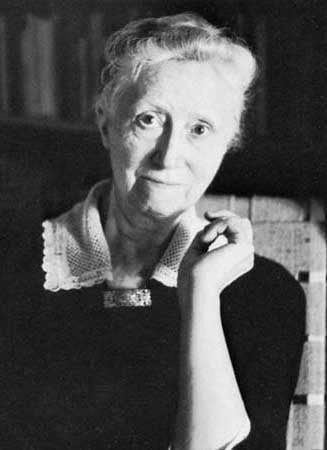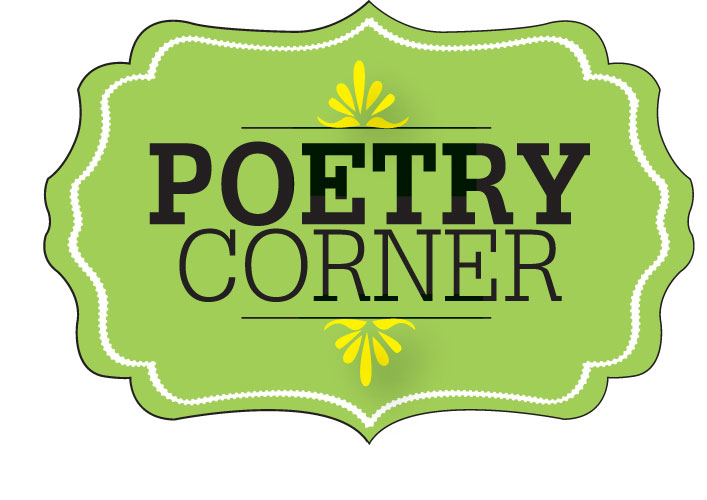By Norah Christianson
Poetry
~ Marianne Moore
I too, dislike it: there are things that are important beyond all this fiddle.
Reading it, however, with a perfect contempt for it, one discovers that there is in
it after all, a place for the genuine.
Hands that can grasp, eyes
that can dilate, hair that can rise
if it must, these things are important not because a
high-sounding interpretation can be put upon them but because they are
useful; when they become so derivative as to become unintelligible,
the same thing may be said for all of us—that we
do not admire what
we cannot understand. The bat,
holding on upside down or in quest of something to
eat, elephants pushing, a wild horse taking a roll, a tireless wolf under
a tree, the immovable critic twinkling his skin like a horse that feels a flea, the base—
ball fan, the statistician—case after case
could be cited did
one wish it; nor is it valid
to discriminate against “business documents and
school-books”; all these phenomena are important. One must make a distinction
however: when dragged into prominence by half poets, the result is not poetry,
nor till the autocrats among us can be
“literalists of
the imagination”—above
insolence and triviality and can present
for inspection, imaginary gardens with real toads in them, shall we have
it. In the meantime, if you demand on the one hand, in defiance of their opinion—
the raw material of poetry in
all its rawness, and
that which is on the other hand,
genuine, then you are interested in poetry
In 1999, UNESCO proclaimed March 21 as World Poetry Day. Every day is some kind of day. Potato Chip Day, Take Your Ex to the Cleaners Day, Biblioklept Day. But World Poetry Day was created by UNESCO for the altruistic reason of “supporting linguistic
diversity through poetic expression.” Does supporting mean money? Money’s good. Money is supporting, especially for poets who are so often rather raggedy. But somehow I doubt it means money. The other reason, according to UNESCO, for World Poetry Day (or WoPoDay, as I like to call it) is “to increase the opportunity for endangered languages to be heard.” How? And do people who speak endangered languages write poetry? And if they do, and if they write them in their endangered, rare languages, how can we understand them? And to hear them, must we go to Ittoqqortoormiit (Greenland) or La Rinconada (Peru) or The Kerguelen Islands (a.k.a. The Desolation Islands – Southern Indian Ocean)?
But I digress before I even start. I picked Marianne Moore’s poem “Poetry” because of WoPoDay. “Poetry.” So fitting a title, yes? And you gotta love the first line: “I, too, dislike it….” We dislike it, Moore says, because there are things more important. But then she goes on to remind us that, actually, there is, in good poetry, important things, genuine things. Except, she then says, when the language is “derivative,” i.e., imitative and full of symbolism and fancy words so that poem is unintelligible. When the poem is unintelligible (like most poems in The New Yorker, for instance), we do not admire it.

Moore then makes a list of real things that can be written about—the bat, the baseball fan, the twinkly-skinned critic (a little jab at those creeps), and even business documents. (I challenge you to write one of those). These are real things, genuine things to write about. But, she warns, we must be aware that when these real things are “dragged into prominence” (I think she means “made too much of,” but I don’t know what that means either) by “half poets,” ( I think she means half-assed poets), the result is not poetry.
Until the “autocrats “ (I take this word to mean the dictators of the rules for poetry) can be “literalists of the imagination” (an oxymoron if there ever was one), and write about toads (the literal) in imaginary gardens (the imaginative), we won’t have real poetry. So we must demand, in defiance of “their” (the autocrats’) opinion, that poetry be raw and genuine. The “I, too…” of the very first line, allies her with us. Later, she speaks of “we”. But in her conclusion, she wants “you” (us) to demand good poetry. If you/we are up to the demanding job of demanding, then “you are interested in poetry.”
I too, am exhausted. I have to admit that this poem, at times, is opaque to me. Sometimes incoherent (to me.) It’s interesting that Marianne Moore is critical of poetry that is unintelligible, yet she herself certainly can be. And of whom, exactly, are we to demand that poetry be raw and genuine and understandable? I guess a letter to The New Yorker could be the whom. (sic)
Copied straight from Wikipedia: Marianne Moore (November 15, 1887 – February 5, 1972) was an American modernist poet, critic, translator, and editor. Her poetry is noted for its formal innovation, precise diction, irony, and wit. She was nominated for the 1968 Nobel Prize in Literature.
*NOTE: This column was written by an embittered poet who has been rejected by The New Yorker 11 times.


More, more, Norah. I’m almost speechless and breathless. Thanks for the ride.
Dee
You are funny and not that bitter